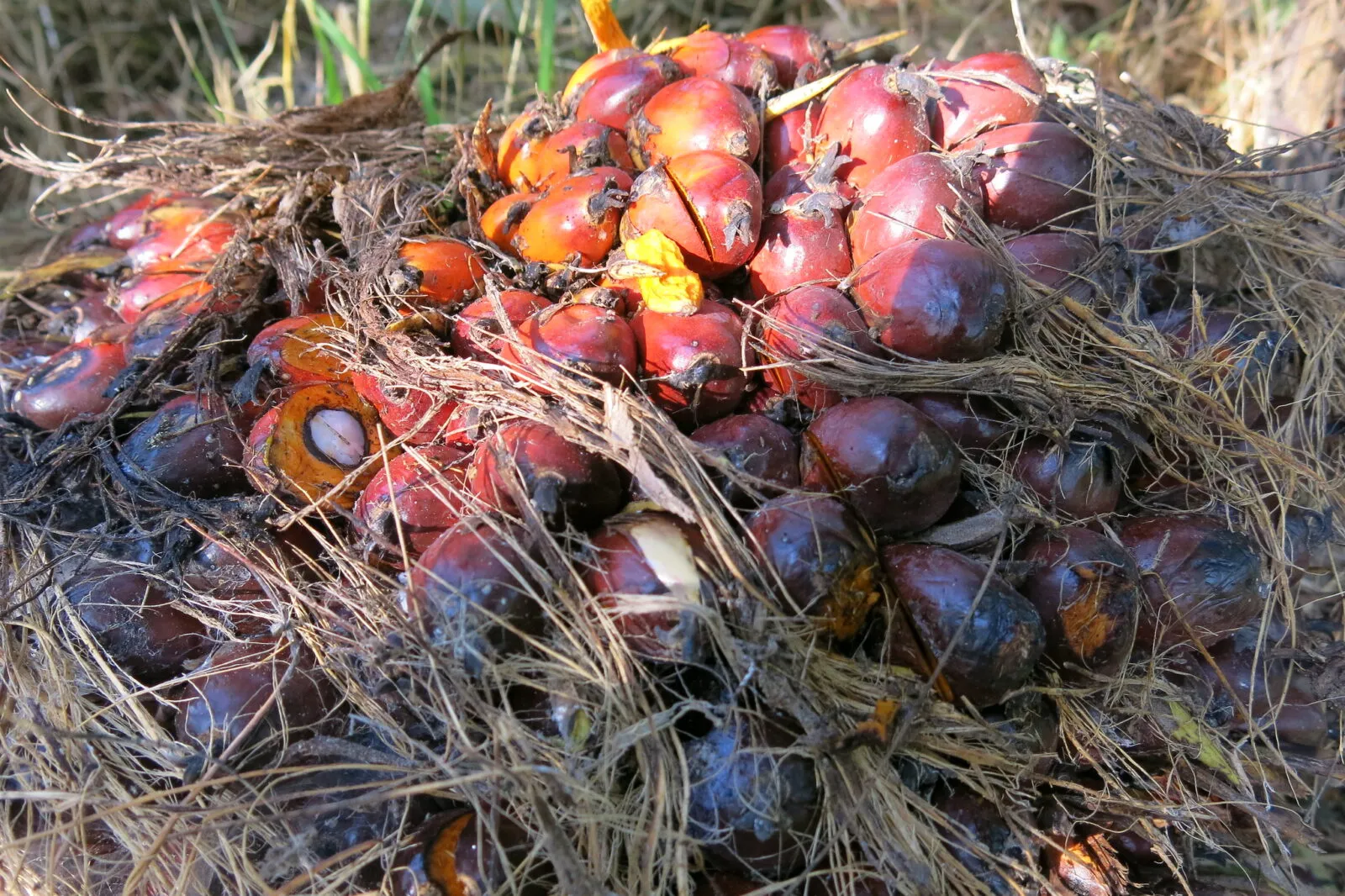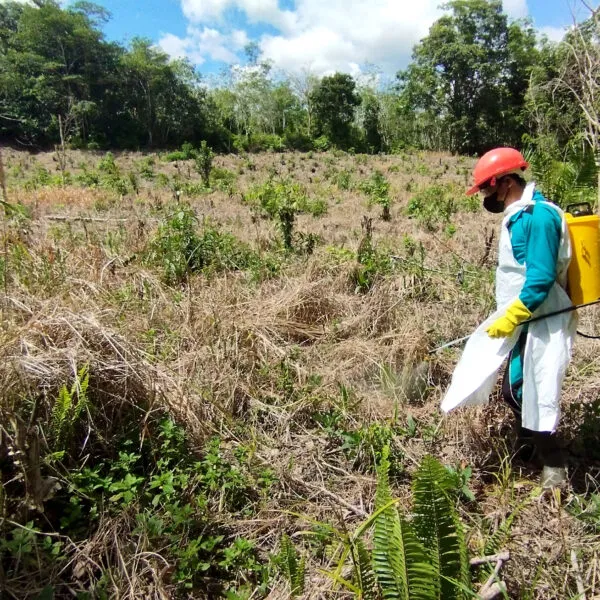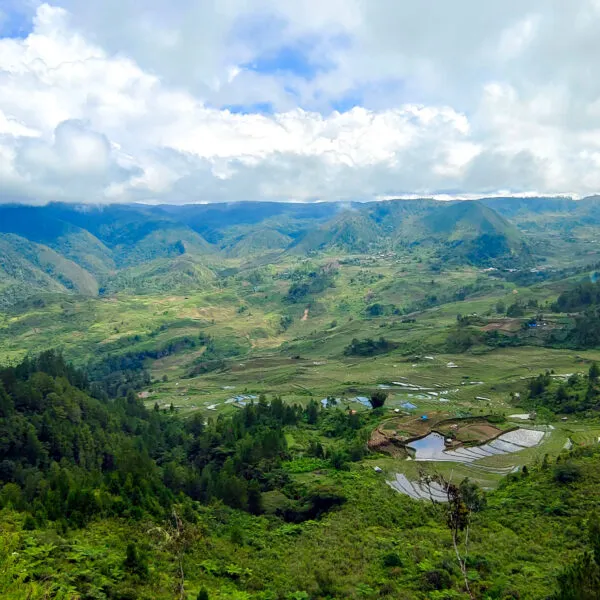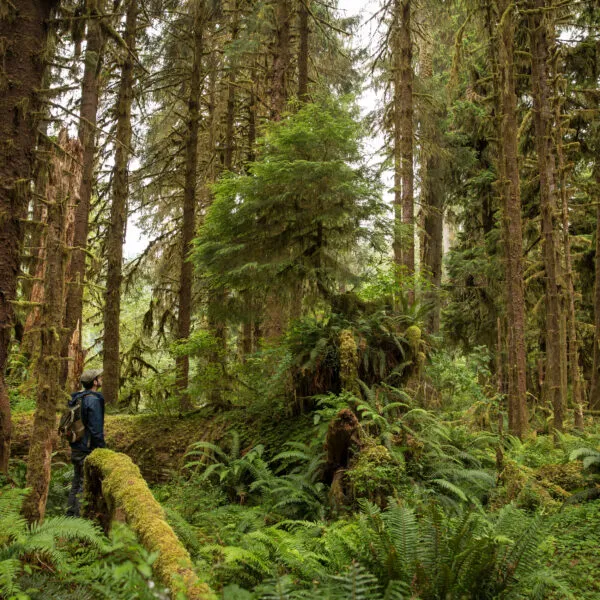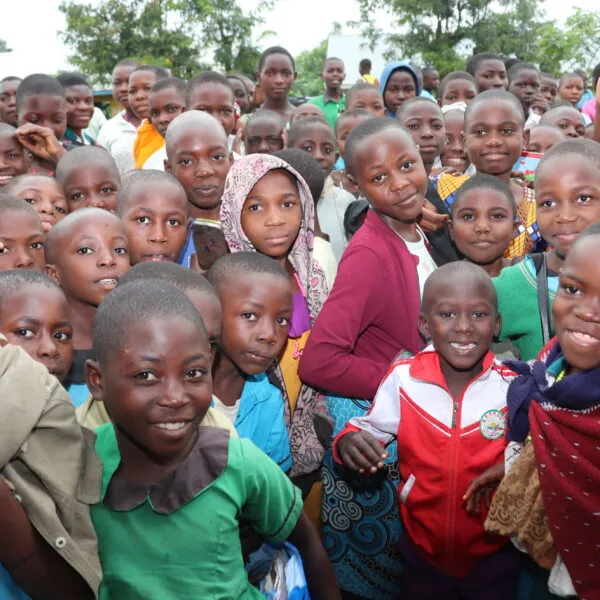Situated on the southern corner of Borneo, West Kalimantan—an area of 1.5 million hectares—is the third largest area of palm oil plantations in Indonesia. In addition to oil palm, the government has prioritized natural rubber as a strategic commodity in this area, with 39,167 tons produced in 2019. While these sprawling plantations are key assets to the country’s economy, they also pose serious threats to West Kalimantan’s remaining rainforests, which are some of the most biodiverse on the planet. Without strong market links or access to resources, many smallholder farmers struggle to earn a profit and resort to harmful practices that drive deforestation, such as slash and burn agriculture and timber extraction. In recent years, the Government of Indonesia has made significant strides to address these issues and reduce annual deforestation rates. Even so, more coordination is needed between landscape-users (from farmers to companies) as well as greater support and monitoring from the government.
Since 2018, the Rainforest Alliance has been working in the Sintang District of West Kalimantan to promote an Integrated Landscape Management approach that brings different land-users and stakeholders together to address ecological, social, economic, and government issues around oil palm and natural rubber production. The first two phases of the project supported smallholder farmers to implement good agricultural practices and the formation of multi-stakeholder platforms and action plans to promote more sustainable development of oil palm and natural rubber throughout the district. In the next phase of the project, we will build on these successes to scale the sustainable production independent smallholder farmers, engage the private sector to implement a sustainable supply chain, and support land use planning and governance in Sintang for widespread sustainable transformation.
Location
Indonesia:
- Sintang District of West Kalimantan Province
– Ketungau Hulu and Ketungau Tengah subdistricts
Period
2022 – 2024
Partner communities
This project is expected to benefit 300 oil palm farmers and 100 natural rubber farmers across the Sintang District of West Kalimantan.
Project objectives: aligning stakeholders and uplifting smallholders
The overarching goal is to protect and restore the region’s remaining natural tropical rainforest and critical ecosystems by halting deforestation and forest conversions.
The Rainforest Alliance will contribute to this goal through three main objectives:
- Strengthening the position of smallholder farmers in palm oil and rubber supply chains
Through this project, we will build the capacity of local farmer groups and create more robust mechanisms to include smallholder farmers in palm oil and rubber supply chains. Using a business case and our market connections, we will connect smallholder farmers with market demand for more responsibly sourced products and provide training to farmer groups on sustainable agricultural practices and business development. We will also conduct detailed data collection and mapping of farmland to help farmers acquire ownership certificates, which is a prerequisite for achieving Indonesian Sustainable Palm Oil (ISPO) certification. - Scaling a landscape and jurisdictional-based approach
This project will support the implementation of the Sintang District’s sustainability strategy, helping them scale commitments and communicate achievements. To align the private-sector with the implementation of regional action plans, the project will also identify actors to commit to aligning their sustainability strategies with the Accountability Framework Initiative. Lastly, we will support independent oil palm and rubber associations, such as Asosiasi Petani Kelapa Sawit Indonesia and Asosiasi Petani Karet Indonesia, so that they can increase farmers’ bargaining power and convene dialogues on partnerships for responsible sourcing. - LandScale alignment and systemic thinking modeling
LandScale is an all-in-one sustainability assessment tool, co-created by the Rainforest Alliance, that generates key insights (including risk, performance, and impact) at the landscape level. This project will build on recent LandScale pilots in Sintang by facilitating alignment between the tool’s sustainability indicators and the government’s performance indicators to improve the district’s landscape sustainability performance. The project will also adopt a “systemic thinking modeling” approach that looks at how environmental governance fits within the larger context of the district’s sustainable agricultural commodity development and land-use planning. This approach will be used to make projections for oil palm and natural rubber development in Sintang. The Rainforest Alliance will work directly with existing national and sub-national platforms to implement sustainability strategies within the supply chain, including Indonesia’s Sustainable Natural Rubber Platform secretariat.
Desired impacts: improved partnership and productivity across the landscape
- Increased smallholder productivity
We will increase the productivity of 400 smallholder oil palm and natural rubber farmers by supporting them to implement more sustainable agriculture practices and gain better access to markets through strengthened farmer groups. - Greater landscape sustainability
This project aims to improve landscape sustainability performance throughout the Sintang District by supporting the district government to deliver their sustainability commitments and by enhancing the sustainability of palm oil and natural rubber supply chains. By the end of the project, all palm oil plantations and mills in Sintang will comply with ISPO. - Strong multi-stakeholder platforms and an improved modeling system
By the end of the project, there will be strong multi-stakeholder platforms on sustainable palm oil and rubber that drive land-use planning and governance. Next to that, a sustainable agricultural commodity development modeling system will provide a forward-looking analysis for the entirety of Sintang’s 2,206,239 hectares. This model will support the future development of Landscape Action Plans and a strategic plan for agricultural development and Integrated Landscape Management across the landscape.
Funder
The David and Lucile Packard Foundation
Implementing partners
- Lingkar Temu Kabupaten Lestari (Sustainable District Association)
- Tim Pelaksana Daerah Kelapa Sawit Berkelanjutan (Sustainable Palm Oil Regional Implementation Team)
- Conservation Strategy Fund (CSF)
- World Wildlife Fund for Nature (WWF)
- Solidaridad
Rainforest Alliance contact
Tri Padukan Purba, Palm Oil Team Manager
tpurba@ra.org
